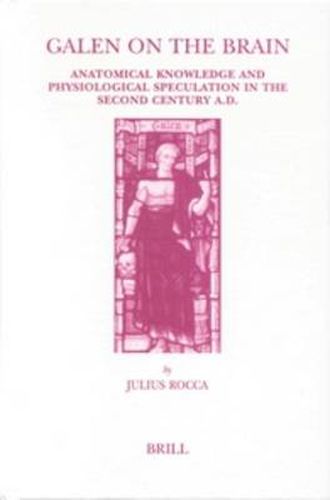Readings Newsletter
Become a Readings Member to make your shopping experience even easier.
Sign in or sign up for free!
You’re not far away from qualifying for FREE standard shipping within Australia
You’ve qualified for FREE standard shipping within Australia
The cart is loading…






This book is a study of the ways in which Galen sought to establish the brain as the regent part (hegemonikon) of the body, utilizing a rigorous anatomical epistemology and an often sophisticated (but perforce limited) set of physiological arguments. Part 1 surveys the medical and philosophical past in which the study of the brain occurred, and looks at the materials and methods which Galen employs to legitimate his hegemonic argumentation. Part 2 examines Galen’s anatomical understanding of the brain, especially the ventricles. Part 3 offers a critical evaluation of Galen’s physiology of the brain. This is the first monograph to offer a detailed account of this subject, setting it within the cultural and intellectual contexts of its era, and should be of interest to those in classics, medical history, history and philosophy of science and the history of ideas.
$9.00 standard shipping within Australia
FREE standard shipping within Australia for orders over $100.00
Express & International shipping calculated at checkout
This book is a study of the ways in which Galen sought to establish the brain as the regent part (hegemonikon) of the body, utilizing a rigorous anatomical epistemology and an often sophisticated (but perforce limited) set of physiological arguments. Part 1 surveys the medical and philosophical past in which the study of the brain occurred, and looks at the materials and methods which Galen employs to legitimate his hegemonic argumentation. Part 2 examines Galen’s anatomical understanding of the brain, especially the ventricles. Part 3 offers a critical evaluation of Galen’s physiology of the brain. This is the first monograph to offer a detailed account of this subject, setting it within the cultural and intellectual contexts of its era, and should be of interest to those in classics, medical history, history and philosophy of science and the history of ideas.